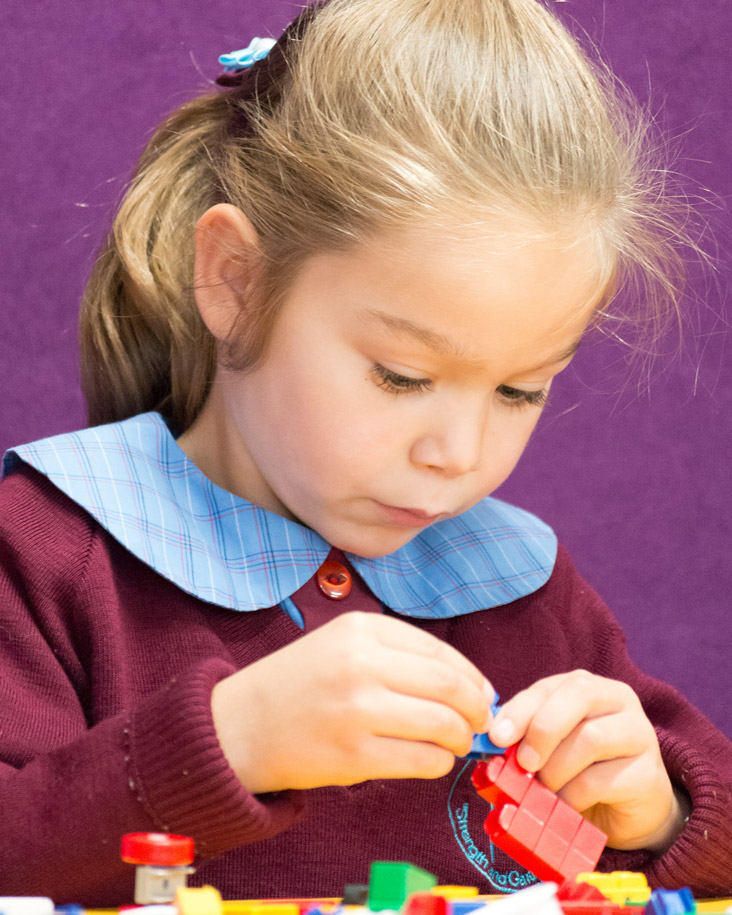
- Home
- Learning in Religious Education

The content of the Diocese of Sale Religious Education Curriculum is based on the Sacred Scriptures, Tradition and the Church’s Magisterium (General Directory for Catechesis, 1997, p.120), particularly as expressed in the Catechism of the Catholic Church (2nd edition, 1997).
Its methodology is based on the Church’s documents on evangelisation in Catholic education, Catechesis and Religious Education. It is also reflective of the research of the Enhancing Catholic School Identity Project, a research and implementation project carried out by the Centre for Academic Teacher Training of the Faculty of Theology and Religious Studies of the Catholic University of Leuven in Belgium, conducted under the auspices of the Catholic Education Commission of Victoria.
The Religious Education Curriculum needs to be coherent and incremental, ensuring that learning is developmentally appropriate and tailored for students’ learning needs and backgrounds. As well as being reflective of the Victorian Curriculum, it also needs to engage with the living values and beliefs of a Catholic worldview. Through engagement with this Religious Education Curriculum, students should be encouraged to develop a worldview that is “… informed by Catholic beliefs and values in relation to God, life-giving relationships, justice and an ongoing search for what is good, right and true in their culture and world.” (Sharkey, 2015)

Taking student learning needs into account when considering Religious Education pedagogy, teachers of Religious Education need to be Witnesses, Specialists and Moderators (Pollefeyt, 2008).
.jpg)

As witnesses, teachers will embody an intentional Christian life. In doing this they will share insights and experiences that are appropriate for the learning process and the level of readiness of students. To do this effectively, teachers must have reflected on their personal experience of faith, and formed a positive appropriation of Christian faith in their personal life journey. As such, students will see in their teachers the Christian attitude and behaviour that can be absent from the secular atmosphere in which they live. Without this witness, living in such an atmosphere, they may begin to regard Christian behaviour as an impossible ideal (The Sacred Congregation for Catholic Education, 1982).

As specialists, teachers will have a deep understanding of Catholic beliefs and understandings and be suitably immersed within them. They should have a deep knowledge of the content of the Religious Education Curriculum in order to guide student learning opportunities and ensure a progression of learning for all students. Competent knowledge in the fields of theology and Scripture will help teachers in their role as specialists, as will an ongoing process of professional learning in Religious Education, theology and Scripture.

As moderators, teachers will be guides and mentors, challenging and enabling students to freely articulate their own intellectual, moral and religious positions. Teachers must therefore be careful when sharing their experiences to avoid presenting them as the only pathway to truth, in a mono-correlational style of pedagogy. As moderators, teachers will work to create learning environments that allow deep, dialogical encounters with faith traditions, cultural contexts and different life philosophies.
They will enable students to explore their own presumptions, views and commitments in their search for meaning. In this, teachers as moderators will know how to engage students with Catholic beliefs and values without imposing these beliefs and values on them. They will also know how to create teaching and learning opportunities where students feel free to share their own understanding and viewpoints as they engage with the Catholic story. (Sharkey, 2015)

It is important to remember that religious formation is God’s work, unfolding as an experience of grace for each person within the school community. Religious outcomes or faith responses cannot be enforced. Instead, they should be recognised, encouraged and supported. In all experiences at a Catholic School, religious beliefs and practices should be continuously and appropriately interpreted to ensure that they are intelligible to the members of the school community (D’Orsa and D’Orsa, 2012). Religious formation, as distinct from the content knowledge and skills presented though the Religious Education curriculum, needs to be seen as an encounter with grace (Sharkey, 2015). In developing an appropriate Religious Education Curriculum in schools, it is important to avoid indoctrination.
Progress of student learning in Religious Education will be appropriately assessed and reported to parents/caregivers.
